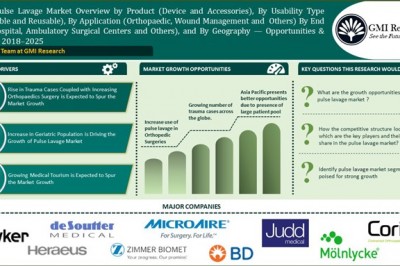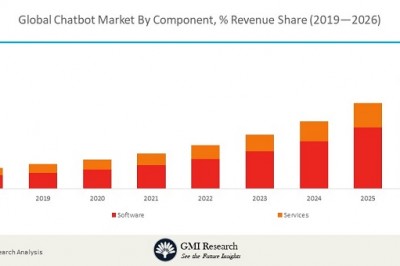Artificial Intelligence (AI) is revolutionizing the recruitment experience, benefiting both employers and candidates by making the process more efficient, personalized, and fair. The use of AI in recruitment has grown exponentially, driven by the need for companies to streamline their hiring processes and improve the quality of their hires in a competitive talent market. Here's an exploration of how AI is improving the recruitment experience:
For Employers
Streamlining the Screening Process: AI-powered tools automate the screening of resumes and applications, saving recruiters a significant amount of time. These tools are not only faster but also more accurate at matching candidates' skills and experiences with job requirements, reducing the risk of overlooking qualified applicants.
Enhanced Candidate Sourcing: AI algorithms can scour the internet to identify potential candidates who match specific job profiles, even if those individuals aren't actively looking for new opportunities. This proactive approach to sourcing expands the talent pool and helps companies find the best candidates more efficiently.
Bias Reduction: AI has the potential to make recruitment fairer by minimizing human biases that can influence hiring decisions. By focusing on data-driven criteria, AI can help ensure that candidates are evaluated based on their merits and qualifications rather than subjective impressions.
Predictive Analytics: AI tools can analyze patterns in employee data to predict which candidates are likely to succeed in a role or fit into the company culture. This predictive capability helps improve the quality of hires and can reduce turnover by identifying candidates who are a good long-term fit.
Data-Driven Decision Making: AI provides recruiters and hiring managers with insights derived from the recruitment process, such as the effectiveness of different sourcing channels, the time taken to fill positions, and the performance of new hires. These insights enable organizations to refine their recruitment strategies and make informed decisions.
Improved Candidate Experience: AI-driven chatbots and communication tools can interact with candidates in real-time, answering questions, providing feedback, and guiding them through the application process. This immediate engagement keeps candidates informed and enhances their experience with the company.
Personalized Job Recommendations: AI algorithms can analyze candidates' profiles to suggest job opportunities that match their skills, experiences, and career aspirations. This personalization makes the job search more relevant and efficient for candidates, helping them find suitable roles faster.
Fairer Screening Process: By automating the initial screening process, AI reduces the impact of human biases, offering candidates a fairer chance to be evaluated based on their qualifications. This is particularly beneficial for promoting diversity and inclusivity in the workplace.
Faster Hiring Process: Automation and AI-driven efficiencies can significantly shorten the hiring cycle, meaning candidates learn the outcomes of their applications sooner. This reduces the uncertainty and stress associated with job applications and allows candidates to move forward more quickly, whether they secure the position or need to continue their job search.
Projecting the state of the recruitment job market in 2024 involves considering current trends in technology, the economy, and the workforce, as well as the lasting impacts of global events such as the COVID-19 pandemic. While specific details can vary depending on geographical location and industry, several broad trends are likely to influence the recruitment job market in the coming years. Here's an exploration based on these factors:
Increased Demand for Recruitment Professionals
The recruitment job market is expected to see a continued increase in demand for skilled professionals. Several factors contribute to this trend:
- Recovery and Growth in Various Sectors: As industries that were hit hard by the pandemic recover and grow, the demand for talent will increase, subsequently boosting the need for recruitment professionals to source, attract, and hire this talent.
- Technological Advancements: The rapid pace of technological innovation across sectors is creating new roles and requiring specific skill sets, further driving the need for specialized recruiters who can understand and meet these emerging needs.
- Global Talent Shortages: In many sectors, there's an ongoing challenge of talent shortages, particularly for roles requiring high levels of skill and expertise. Recruitment professionals who can effectively navigate the global talent pool and attract these individuals will be in high demand.
Technology, especially AI and machine learning, is transforming the recruitment industry. In 2024, recruiters who are adept at using advanced recruitment technologies will be highly sought after. These technologies can improve efficiency and effectiveness in sourcing candidates, automating administrative tasks, and enhancing candidate engagement. However, the human element of recruitment—such as relationship building, understanding company culture, and making judgment calls on candidate fit—remains irreplaceable. Professionals who can blend technological proficiency with strong interpersonal skills will stand out in the job market.
Importance of Soft Skills
Soft skills, including communication, adaptability, and emotional intelligence, are becoming increasingly important in the recruitment profession. As the job market becomes more candidate-driven, particularly for high-demand roles, recruiters need to excel in candidate engagement, negotiation, and building strong relationships with both candidates and hiring managers. The ability to understand and communicate a company's employer brand effectively is also crucial.
Specialization and Niche Recruiting
There's a growing trend towards specialization and niche recruiting, with companies seeking recruiters who have deep knowledge and networks within specific industries or functional areas. This specialization allows recruiters to better understand the roles they're filling and the specific skills and experiences required, improving the quality of hires and reducing time-to-hire. Recruiters who specialize in high-demand areas like technology, healthcare, or renewable energy are likely to be particularly in demand.
Remote and Flexible Working Arrangements
The recruitment industry has seen a significant shift towards remote and flexible working arrangements, a trend accelerated by the pandemic but likely to continue due to its popularity among workers. Recruitment professionals need to be adept at managing remote recruitment processes, including virtual interviews and onboarding. Additionally, the ability to recruit for remote roles opens up a global talent pool, requiring recruiters to be knowledgeable about international hiring practices and regulations.
Emphasis on Diversity, Equity, and Inclusion (DEI)
DEI initiatives are becoming a central part of recruitment strategies. In 2024, recruiters with experience in building diverse talent pipelines and implementing inclusive hiring practices will be highly valued. This includes understanding how to mitigate bias in the recruitment process, engage with diverse candidate groups, and communicate a company's DEI commitments effectively.
Conclusion
The recruitment job market in 2024 is likely to be dynamic, with high demand for skilled professionals who can navigate the challenges of talent shortages, technological advancements, and evolving candidate expectations. Recruiters who invest in developing their technological proficiency, specialize in high-demand areas, and prioritize soft skills and DEI initiatives will be well-positioned for success. As always, the ability to adapt to changing market conditions and emerging trends will be a key factor in remaining competitive in the recruitment industry.
Conclusion
AI is transforming the recruitment experience by making it more efficient, personalized, and fair. For employers, AI-driven recruitment means access to a broader talent pool, improved hire quality, and reduced biases, all while saving time and resources. For candidates, it means a more engaging, relevant, and equitable application process. As AI technology continues to evolve, we can expect further innovations that will enhance the recruitment experience even more. FD Capital are a leading recruiter for the senior Finance niche. However, it's crucial for organizations to remain vigilant about the ethical use of AI, ensuring transparency, fairness, and privacy in their recruitment practices.

































